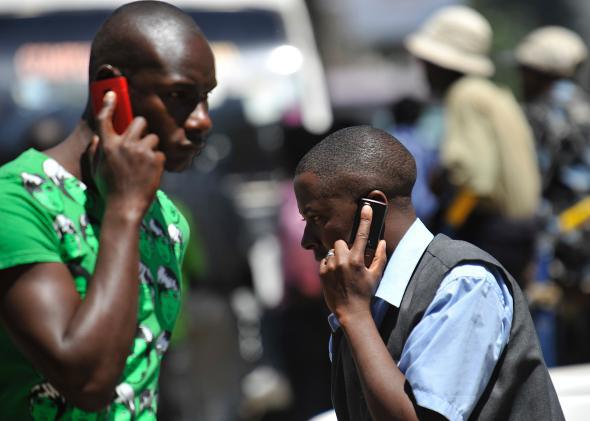Osamuyimen (“Uyi”) Stewart is chief scientist at IBM-Africa, a research lab in Nairobi, Kenya. The Nigerian-born computer scientist, who specializes in human-computer interaction, says the opening of the lab is a pivotal moment—and researchers of the African diaspora should be part of it.
Clint Witchalls: Why did IBM open a research lab in Africa?
Osamuyimen Stewart: Africa has an abundance of natural resources, a rising middle class, a deep penetration of mobile phones and, in another 20 years, it will have the largest concentration of young people on Earth. This continent is about to explode economically.
CW: What does the lab mean for science in Africa?
OS: When I left Nigeria 25 years ago, I was looking to do world-class science. When I returned after graduating from the University of Cambridge, it was frustrating. The infrastructure still wasn’t there to do science. So I left again. There are smart people in Africa, but the infrastructure and the resources haven’t been there. The lab is a catalyst. It will enable Africans to do science in Africa for Africa.
CW: Do you see this as a pivotal moment?
OS: We are at a tipping point. Work at the universities in sub-Saharan Africa is mainly theoretical. We are bringing an industrial, commercial lab that can combine fundamental research with applied research. When that combination of practice and theory begins to lead to commercially viable innovation, it shows people that it is possible. And if you know the African psyche, once you show them it is possible you cannot stop that train.
CW: Konza Techno City, the “silicon savannah,” is being built south of Nairobi in Kenya. Was this a factor in opening the lab nearby?
OS: It was a factor, but there are hubs of innovation springing up across Africa. We want to be here and enable these things to happen in a practical way.
CW: Your lab will be a center for cognitive computing. Why focus that research here?
OS: The widespread use of mobile phones in Africa gives us the opportunity to collect data in unprecedented ways. And cognitive computing is about crunching data to help computer systems do what they can’t right now, which is to learn how to handle surprises, how to handle problems that are not in the initial database.
CW: In the lead-up to the lab’s opening, initial research has been under way for a year. What have you been up to in that time?
OS: We have worked on traffic solutions, models and algorithms to help us understand the state of groundwater in Kenya, how to better understand the business model that underlies agriculture, and the ecosystem surrounding agriculture.
We have also started work in energy, created a database to measure the cancer burden in Nairobi and looked at how first responders can do a better job when a crisis arises. I can go on.
CW: What impact will the recent terrorist attack in Nairobi have on this embryonic tech scene?
OS: It’s too soon to tell. We are in a volatile situation right now. But here in Nairobi, it’s business as usual. I was in New York when 9/11 happened and we picked up the pieces and we moved on.
CW: You successfully recruited many African-diaspora scientists. How did you go about it?
OS: We just said, there’s a big, positive transformation going on in Africa. Do you want to be part of that?
This article originally appeared in New Scientist.
